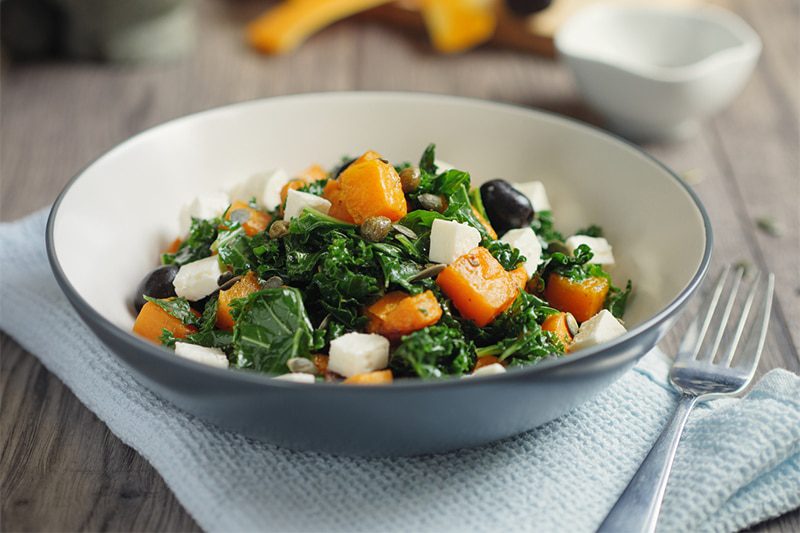Sweet and versatile, butternut squash is an irresistible dish when air gets crisp and leaves turn burning shades of red and orange.
From a creamy bisque to a flavor-filled curry, see this recipe that lets this fall gourd shine.
Butternut Squash and Kale Salad
8
servingsMake this nutrient-packed dish a main course by tossing it with chickpeas, black beans, or diced baked tofu.
Ingredients
- 2
bunches kale, tough stems and ribs stripped out, leaves sliced
- 1 cup
low-sodium vegetable broth, divided
- 1
butternut squash (about 2 pounds), peeled, seeded and cut into ½-inch cubes
- 1
red onion, sliced
- 4
pitted dates, very finely chopped
- 2 Tbsp.
sherry vinegar
Directions
Put kale and 1/2 cup vegetable broth in a large pot and place over medium heat.
Cook, covered, stirring frequently until kale is wilted, about three minutes.
Add squash and continue cooking, stirring occasionally until kale and squash are tender but not mushy, 10 to 12 minutes.
Cool to room temperature.
Nutrition Facts (per serving):
- Calories—100 | Total Fat—0.5g | Sodium—45mg | Carbohydrate —24g | Dietary Fiber—4g | Protein—3g
Facts about Butternut Squash:
Did You Know?
The difference in winter and summer squash is all in the maturity. Winter squash (such as butternut, acorn, and pumpkin) is different from summer squash because it is harvested and eaten in the mature fruit stage. In mature fruit, seeds within have matured fully and the skin has hardened into a tough rind.
How to Choose:
Choose squash that’s heavy and dense, with an intact, non-green stem. Make sure the surface skin is dull and matte, as shiny skin indicates that it was picked too soon. Look for squash with a deep color and few cuts, cracks, and soft spots. Some will have a pale spot where they rested on the ground, which is fine.
Storing Wisdom:
Once you’ve taken your squash home, go ahead and give it a good wash. Then, store squash in a cool, dry place with plenty of room for air circulation. Stored this way, they’ll keep for up to six to eight months.


